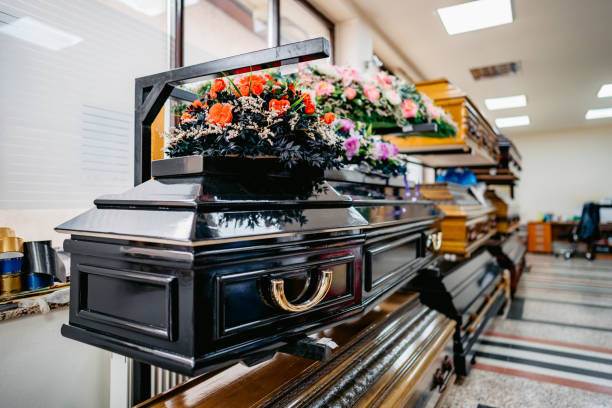Losing a loved one is one of life’s most difficult experiences. Amidst the grief, there are a series of practical steps you need to take immediately following the death of a family member. This guide will walk you through those steps to help ensure that legal, medical, and financial aspects are handled appropriately, while also addressing how to care for your emotional needs during this difficult time.
Notify the Appropriate Authorities
If your loved one passes away at home, the first thing to do is notify the proper authorities. Depending on the circumstances of the death, you may need to:
- Call Emergency Services (911): If the death is unexpected, you should immediately contact emergency services to report it. The police and paramedics will typically come to the home to confirm the death and assist with any necessary documentation.
-
Notify the Family Doctor or Medical Professional: If the death was expected due to a terminal illness, the attending physician should be notified to pronounce the death and complete the death certificate. If hospice care was in place, contact the hospice organization, which can guide you through the next steps.


Decide body disposition
- Arranging funeral services
- Settling insurance claims
- Managing financial affairs like bank accounts and estate planning
Inform Immediate Family Members
Once the death has been legally pronounced, you will need to inform close family members and loved ones. It’s advisable to do this in person or via phone, rather than through text or email, as it’s a sensitive matter. You can also consider asking a close friend or relative to assist with making these calls if you feel overwhelmed.
Some families find it helpful to appoint a point person to manage communication with extended family and friends to reduce stress on the immediate family. Creating a list of people to notify and designating a person to handle inquiries about funeral arrangements can ease the burden.


Start planning the funeral
- The person, prior to their death.
- The Person Authorized to Direct Disposition (PADD) on a U.S. Department of Defense Record of Emergency Data (DD Form 93).
- An agent under a California power of attorney for health care.
- Surviving competent spouse or registered domestic partner.
- Surviving competent adult child or majority of surviving competent adult children.
- Surviving competent parent.
- Surviving competent adult sibling or majority of surviving competent adult siblings.
- Surviving competent adult(s) in the next degree of kinship.
- Conservator of the person (if the decedent has sufficient assets).
- Conservator of the estate (if the decedent has sufficient assets).
- Public administrator (if the decedent has sufficient assets).
Notify Financial Institutions and Agencies
Once the death certificate has been issued, it’s time to notify the relevant institutions and agencies about your loved one’s passing. This may include:
Social Security Administration (SSA): Contact the SSA to stop payments and inquire about potential survivor benefits if applicable.
Life Insurance Providers: File claims with your loved one’s life insurance provider. You will need a copy of the death certificate for this process.
Banks and Credit Unions: Notify your loved one’s bank to close or transition accounts as per the estate plan or will.
Employers: Inform your loved one’s employer to cease payments and handle any final benefits or pension disbursements.
Credit Bureaus: Notify the credit bureaus (Equifax, Experian, TransUnion) to avoid identity theft by marking the person’s credit report as deceased.
Make a checklist of all the institutions to contact to ensure that all financial matters are handled promptly and appropriately.


Locate the Will and Estate Documents
Locating your loved one’s will or trust documents is a critical step in managing their estate. The will specifies how the deceased’s assets should be distributed and names an executor to handle the process. If the will is not easily found, check with the family lawyer or any secure location your loved one may have used for important documents.
The executor of the will is responsible for:
Filing the will with the local probate court
Managing and distributing assets according to the will
Paying any outstanding debts or taxes
- Closing the estate once all assets have been distributed
If your loved one did not have a will, the estate will go through the probate process, which can vary depending on the state laws.
Care for Yourself and Others
Losing a loved one is emotionally overwhelming, and it is important to take care of your mental and physical well-being during this time. Grief affects everyone differently, so allow yourself time to process your emotions and seek support from others.
- Lean on family and friends: Surround yourself with loved ones who can provide emotional support during the grieving process.
Consider professional grief counseling: A grief counselor or support group can help you work through your feelings and provide strategies for coping with the loss.
Take time off work if needed: Many employers offer bereavement leave, so take time to rest and recover from the emotional strain.
It’s also important to consider that other family members, especially children or elderly relatives, may be struggling with the loss. Encourage open communication and share memories of your loved one to support one another.

